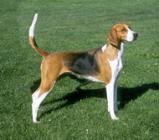
This is a placeholder text
Group text
by hodie on 12 December 2009 - 06:12
Slow the pup down in terms of how quickly it eats, and Molly has suggested methods. I have such a pup and I literally have to stand over her and let her take a few bites and then make her move away until she completely swallows what she had taken, or I can not wet the food and simply spread it out in a large baking tray. That way she has to pick up individual pieces rather than gulp.
I would also suggest worming the pup if it has not been done. If you continue to have trouble, then seek a vet consult.
Good luck.
by Two Moons on 12 December 2009 - 07:12
You are already a cool kid ONE, didn't you know that?
I disagree on you opinions about water and dry food by the way.
Without more information, any opinions about Gilgarmor's problems are only wild guesses, in my opinion.
Everybody has One, some Two.
I wasn't trying to be funny, only honest.
Members have offered good advice and some not.
I offer none, it could be many things, again in my opinion.
A little more information would go a long way.
Moons.
by TheOne on 12 December 2009 - 08:12
by Two Moons on 12 December 2009 - 08:12
by Red Sable on 12 December 2009 - 11:12
I was diagnosed with Rheumatoid arthritis 3 months ago. If Ihad listened to the mainstream doctors I'd be on tons of drugs and poisoning my body to be pain free and more than likely a cripple in a couple of years. I chose to go to a homeopathic doctor, now I am pain free and symptom free just by eating healthy. So, the choice is ours, as it is with feeding out dogs. Raw is the best because the food has natural enzymes in it to help it digest, along with water for processing

I think the pup is probably scarfing it down to fast, but the poster said it is only once and a while, so whatever it is, it can't be too serious.
by oso on 12 December 2009 - 13:12
Hopefully this puppy is fine and will just grow out of the problem, assuming she seems fit and well otherwise. Obviously control for parasites and food quality as others have mentioned and see a vet if the problem persists. Good luck!
by Prager on 12 December 2009 - 21:12
To Hodie (and others):
This is a quote from the link which I have posted above . It is short and direct. Everybody who breeds or has dogs should read it.
"Megaesophagus can occur at any age as a puppy, or as an older dog. If it afflicts a puppy, the cause is usually genetic, or can be due to a surgically repairable condition called PRAA (Persistant Right Aortic Arch). If not secondary to another disorder in adult animals, it is called "idiopathic" (cause unknown).
Megaesophagus can be secondary to other diseases such as Myasthenia Gravis, Thyroid, Addisons and other Neurological disorders."
Also did you notice that the person who asked original question never responded to Moons questions. Thus I would not worry about their pup. It is probably either OK or dead. Otherwise they would be engaged here trying to figure out what's up with their poor dog.
So this post is just for us to learn.
Prager Hans
http://www.alpinek9.com
by Prager on 12 December 2009 - 21:12
Here is my take on it. Stomach is a muscle. Muscle needs exercise which in wild is assured by the animal eating chunks of raw meat on which the stomach must work and work in order to digest it. If you feed kibble wet and especially dry stomach does not has to work almost at all and atrophies. That than may to torsion /flipped stomach. This happens usually when the dog is older then 4 years.
Thus feed chunks of meat in order to help to prevent this condition. Nothing is 100% though. Feeding wet mushy food in my opinion increases the risk of dogs stomach to flip.
Prager Hans
http://www.alpinek9.com
by hodie on 12 December 2009 - 22:12
Many of us are well aware of the condition megaesophagus, know the medical conditions associated with it etc. None the less, this pup may or may not have such a problem. In medicine, one begins with the most obvious potential problem and works on from there. That is how I work. Maybe you don't.
As for food, water, whether to wet etc. etc., there is, as you well no, not a SINGLE definitive study that associates anything like this with gastric torsion or otherwise. You may wish to do something your way, be our guest. Many of the people here who post have every bit as long, if not longer, experience with the breed and hundreds of dogs. Their experience may differ from yours.
by DebiSue on 13 December 2009 - 01:12
Deb
Contact information Disclaimer Privacy Statement Copyright Information Terms of Service Cookie policy ↑ Back to top




